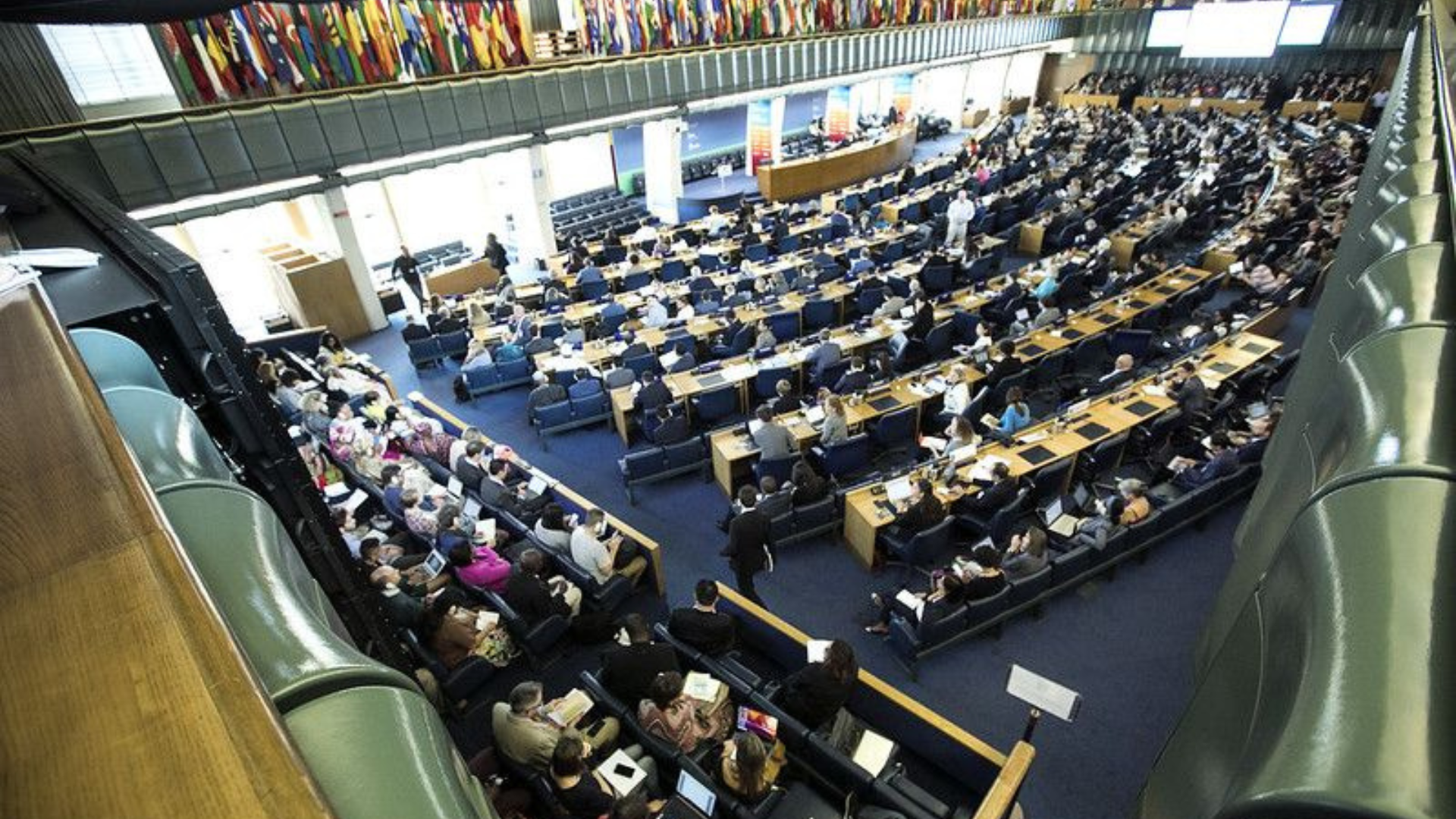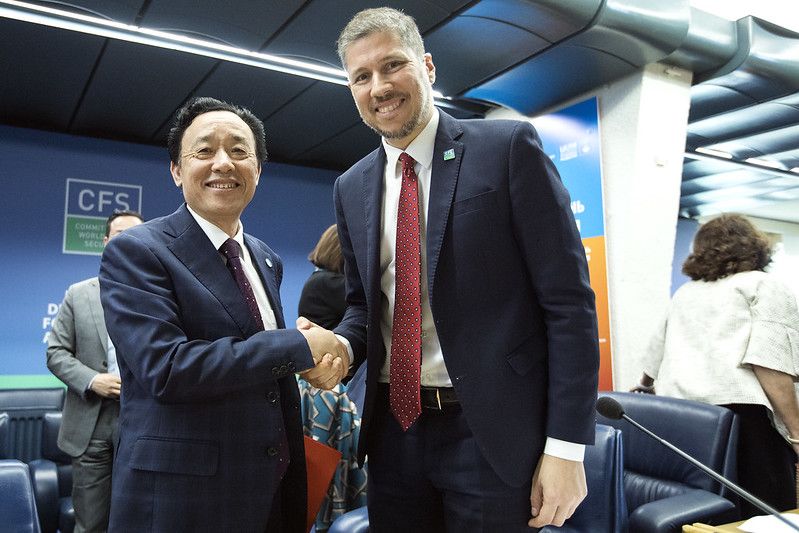From 14 – 18 October 2019, Rome saw the annual gathering of The Food and Agriculture Organization’s (FAO) member states, participants, observers and stakeholders for the 46th meeting of the Committee of World Food Security (CFS). Delegates from 126 countries, key UN organizations and over 200 private sector and civil society representatives and experts came together for a week of plenary sessions and side-events that focus on food security and nutrition.
Summaries of major sessions and side-events

Using a inclusive multi-stakeholder approach, CFS develops and endorses policy recommendations and guidance on a wide range of food security and nutrition topics. These recommendations are developed from scientific and evidence-based reports produced by the High Level Panel of Experts on Food Security and Nutrition (HLPE) and/or through work supported technically by FAO, the International Fund for Agricultural Development (IFAD), World Food Programme (WFP) and representatives of the CFS Advisory Group.
FAO Director-General Qu Dongyu said he hopes the Committee on World Food Security (CFS) will have a “beautiful story” to tell in the coming years as the multistakeholder platform tackles an ambitious plan to work towards food security and nutrition for all. “I’m supporting you – in action, not just talking,” he said in remarks at the closing session of CFS. “If you are more inclusive, you are more productive,” Qu said, noting that CFS must focus their efforts to deliver tangible results for farmers and other people living in a wide variety of different conditions.
SOFI and SOFA 2019
Following the opening by CFS Chairman Mario Arvelo, the new General Director of FAO Qu Dongyu addressed the CFS Plenum for the first time since taking office on 1 August 2019. He called on the member states to participate in the “hand-in-hand” initiative, with which the FAO wants to provide an impulse to eradicte hunger and malnutrition. In his statement, Gilbert Houngbo, IFAD Director General, called in particular for the strengthening of small farms’ resilience. Michael Beasley, WFP Director General, emphasised the importance of the humanitarian-peace nexus and the need for greater involvement of the private sector.
CFS 46 began with the presentation of FAO’s 2019 State of Food and Nutrition in the World (SOFI) report and followed by a press conference to launch another report on The State of Food and Agriculture (SOFA) 2019 Report under the theme of “Moving forward on food loss and waste reduction.” The SOFI 2019 report presented the Food Insecurity Experience Scale (FIES) for the first time as a new indicator for measuring access to food. Many Member States called for action to transform food systems, e.g. through fiscal or food price policies, with a necessary focus on consumer nutrition. At the same time, they also expressed their concern about the fact that there is an increasing hunger figures over the past three years although there has been progress in reducing the global prevalence of malnutrition). In stressing the urgency of transforming food systems, EU Commissioner for International Cooperation and Development, Neven Mimica, called for various measures such as innovation in the context of climate change, increased investment in small farms and the promotion of gender equality.
One of CFS-46’s central agenda items dealt with the current status of the drafting of the voluntary guidelines on Food Systems and Nutrition, which are to be adopted at the 47th CFS in 2020. The Finnish EU Presidency welcomed this process and stressed the importance of a systems-based approach and the governance of food systems. The sustainability of food systems is significantly influenced by their outcomes in terms of nutritional status and health. The Food System Summit 2021 at the FAO was often cited as a milestone for a change in the global food system.

Voluntary guidelines on Food Systems and Nutrition
One of CFS-46’s central agenda items dealt with the current status of the drafting of the voluntary guidelines on Food Systems and Nutrition, which are to be adopted at the 47th CFS in 2020. The Finnish EU Presidency welcomed this process and stressed the importance of a systems-based approach and the governance of food systems. The sustainability of food systems is significantly influenced by their outcomes in terms of nutritional status and health. The Food System Summit 2021 at the FAO was often cited as a milestone for a change in the global food system.
In the course of the CFS, the plenum adopted the Multi Year Plan of Work (MYPoW) 2020-2023, which for the first time defines CFS’s areas of work for a period of four – instead of two- years. The work plan includes the finalisation of the voluntary guidelines for Food Systems and Nutrition and the policy recommendations on agroecology in the context of food systems.
The plan also includes new work lines for policy convergence among Member States on food security on gender, youth employment, data bases and reducing inequality. The High Level Panel of Experts (HLPE) of the CFS will publish reports on these issues in advance. An HLPE report on the “Global Narrative towards 2030” will be published in 2020. The CFS Working Group on Urbanisation and Rural Structural Change discontinued its work after several CFS interim sessions.
World Food Day 2019 and GAFSP side event
To celebrate World Food Day on 16 October, Prof. Jeffrey D. Sachs delivered a keynote to the plenary. The key message was that education and health are the most important prerequisites for eradicating poverty and hunger and that massive investment in human capital is required. He called for greater commitment from states, large multinationals and wealthy individuals, some of whom he named, including Mark Zuckerberg, Bill Gates and Warren Buffet. With regard to Africa’s projected population growth, he called for addressing in particular the educational opportunities for girls.
At the side event marking the start of a new phase for the Global Agriculture and Food Security Program (GAFSP), the BMZ announced that it would provide additional funds of around USD 100 million to support the phase. Head of Unit Martin Hoppe called on other donors to join the cause to reach the goal of USD 1.5 billion by 2025. He also invited other donors to participate in the SDG2 Summit 2020 in Berlin, which is part of a series of global milestones on the road to SDG2.
